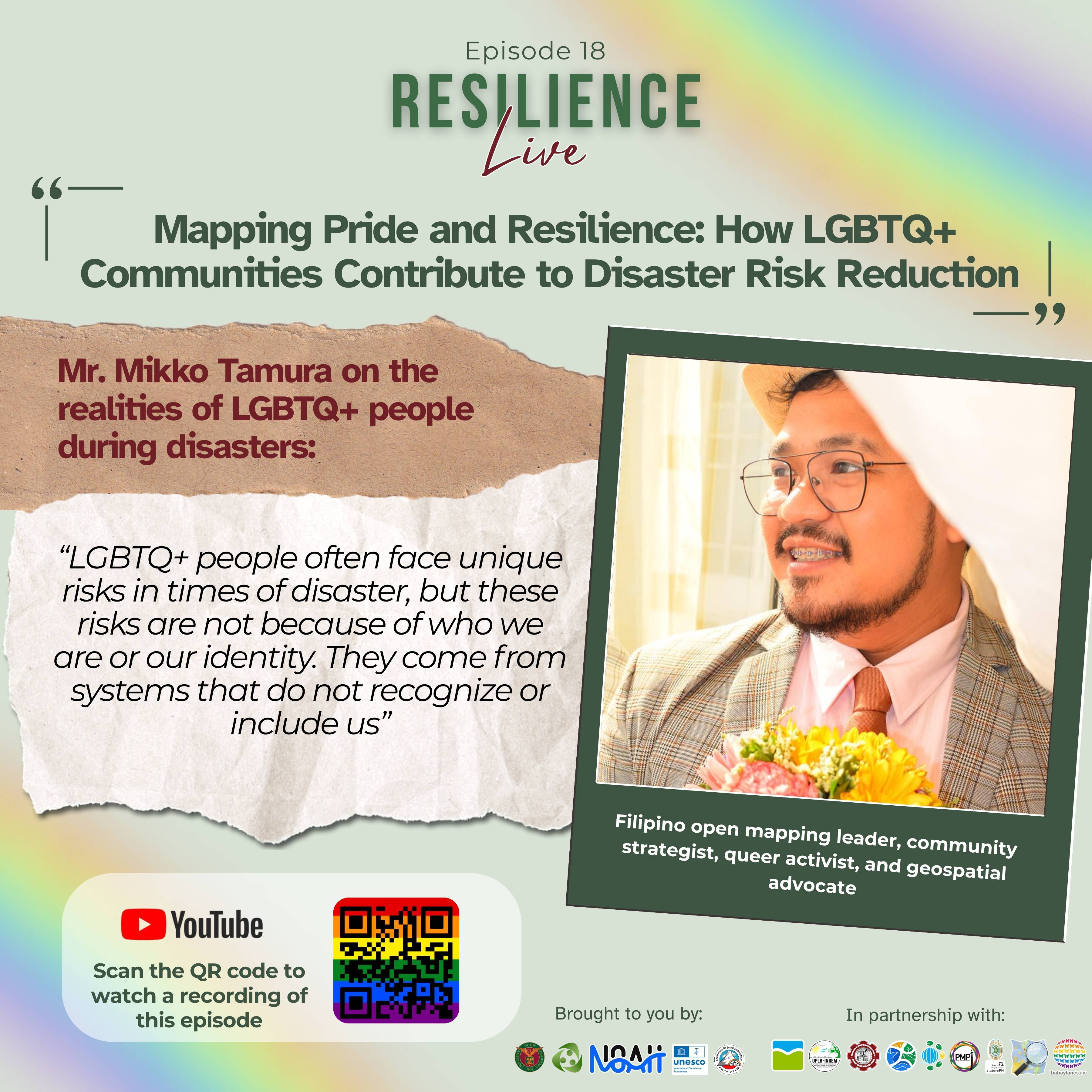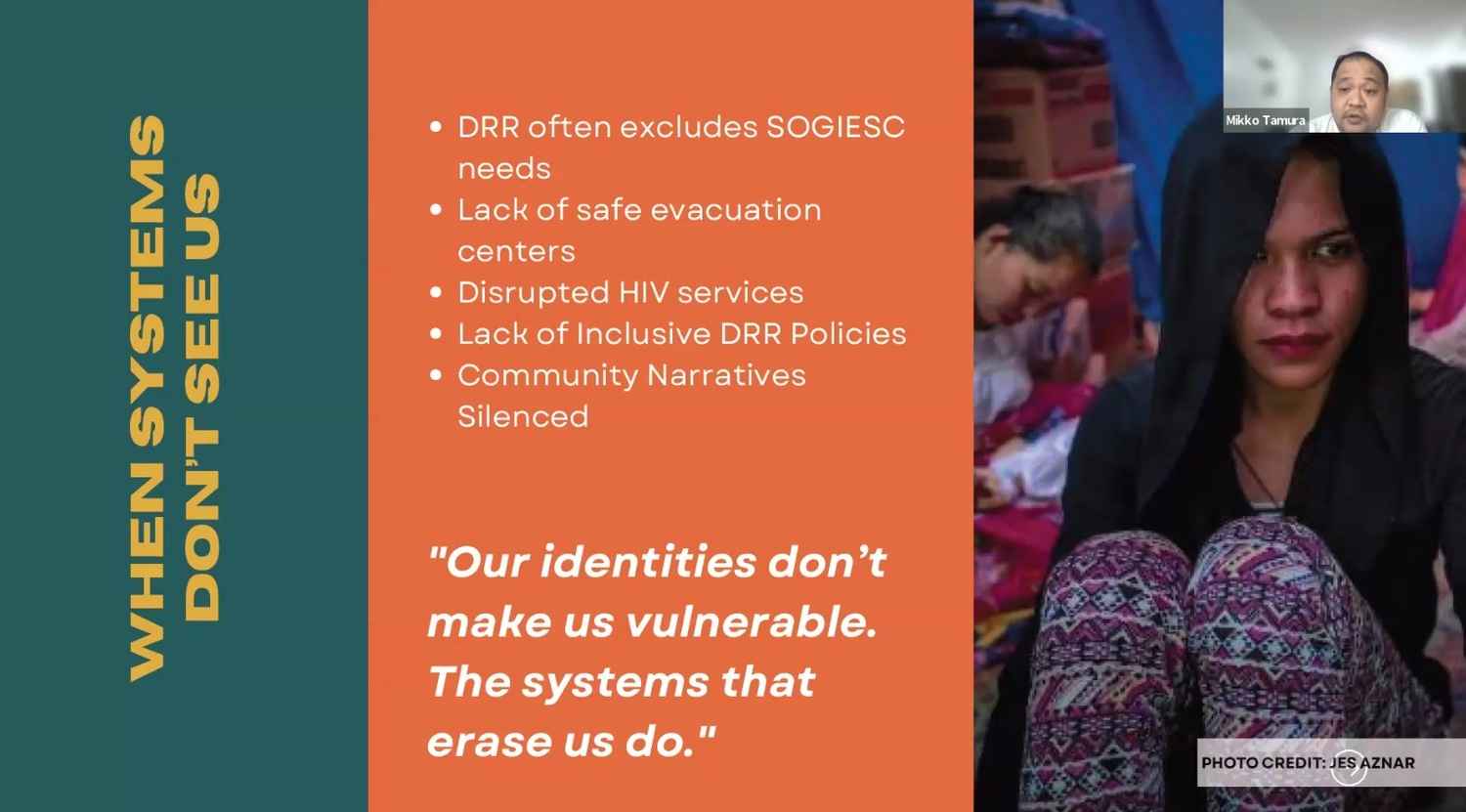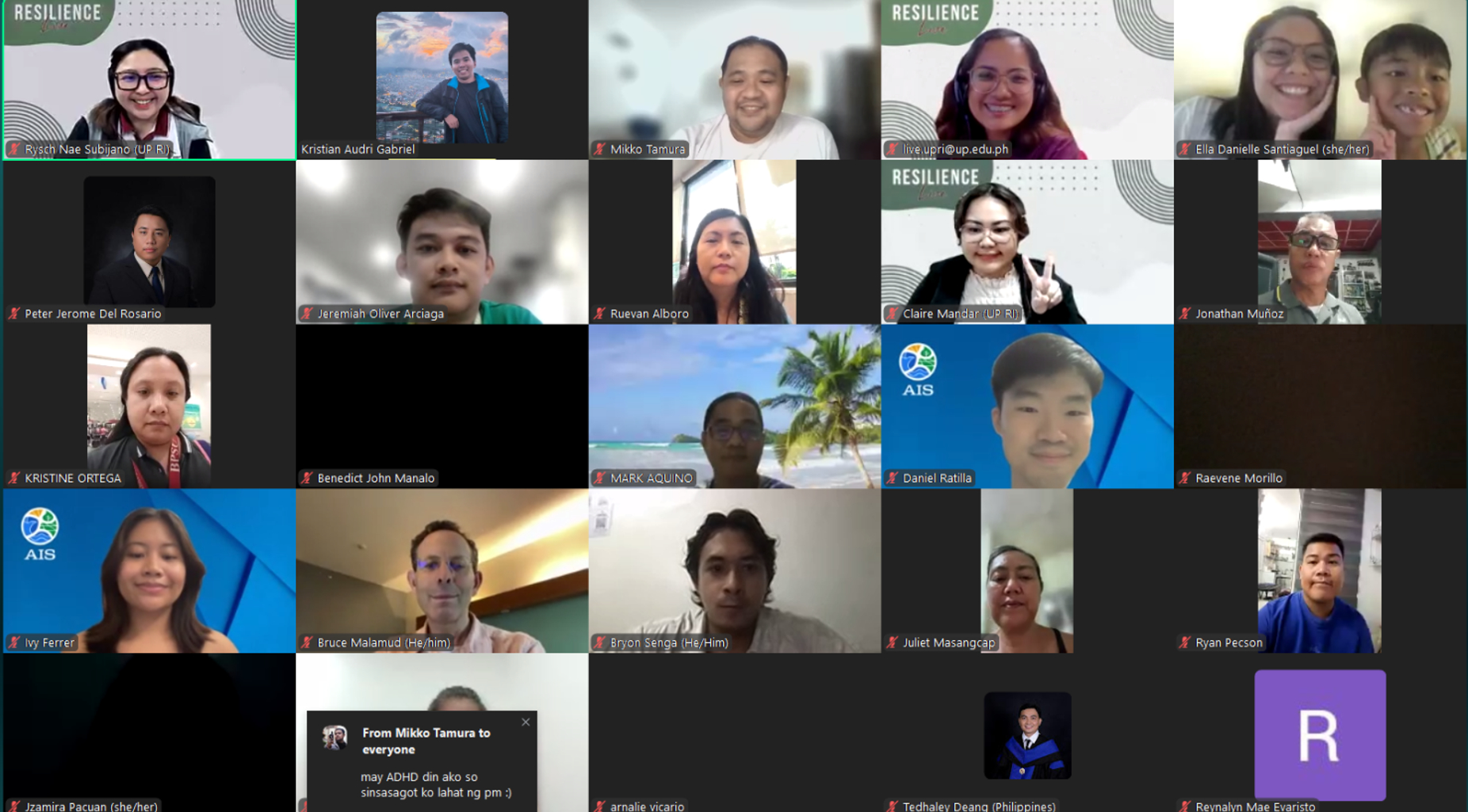Resilience is often defined through infrastructure, early warning systems, or climate adaptation plans, but what happens when one of the most vulnerable groups isn’t even seen on the map?

In Episode 18 of Resilience Live, the discussion centered on how systems continue to marginalize LGBTQ+ communities in disaster contexts, and how these communities are reclaiming visibility. Titled Mapping Pride and Resilience: How LGBTQ+ Communities Contribute to Disaster Risk Reduction, the episode featured Mikko Tamura, a Filipino open mapping leader, queer activist, community strategist, and geospatial advocate. He is also the founder of MapBeks, a volunteer-driven, queer-led mapping community in the Philippines committed to inclusive, data-driven development.
“LGBTQ+ people often face unique risks in times of disaster, but these risks are not because of who we are or our identity. They come from systems that do not recognize or include us” – Mikko Tamura

LGBTQ+ people are often rendered invisible in disaster narratives, not because of who they are, but because of systemic neglect. Mikko shared a powerful story from Tacloban from ten years ago when a transwoman had to dress as a man just to be allowed inside an evacuation center. Another chose not to enter at all, fearing discrimination. “If we are not seen, we are not protected. I believe that resilience begins with visibility,” Mikko emphasized. “If you’re not counted, you’re not planned for. If you’re not on the map, you’re invisible to the systems that are supposed to save you.”
These forms of invisibility are not abstract, they are deeply structural. From the lack of inclusive evacuation centers and disaggregated data on queer evacuees to the absence of records on LGBTQ+ livelihoods or queer-led shelters, systems routinely exclude LGBTQ+ people from disaster preparedness, response, and recovery. Mikko pointed out that when planners meet, the queer community isn’t considered because there is no data. MapBeks is flipping this narrative, transforming invisibility into empowerment through mapping, data storytelling, and community-driven digital tools.
Since its founding in 2019, MapBeks has contributed over 700 data layers and locations to collaborative maps, including emergency facilities, disaster response hubs, and inclusive spaces. The group also conducts SOGIESC (sexual orientation, gender identity and expression, and sex characteristics) training for organizations, and partners with the Humanitarian OpenStreetMap Team (HOT) to support mapping efforts both locally and internationally.
Before the COVID-19 pandemic, MapBeks had already started mapping HIV treatment centers across the Philippines. During the lockdowns, when healthcare access became severely restricted, these data and maps became a lifeline. In partnership with The Red Whistle and other organizations, MapBeks helped deliver antiretroviral (ARV) medications directly to people in need. What started as a technical initiative turned into a community-driven survival network, and inspired their next project.
“If we can map clinics, we can map safe spaces,” Mikko declared. This gave birth to the LGBT Safe Spaces Map, a continuously expanding platform that identifies non-discriminatory, affirming locations for queer Filipinos, including health facilities, community shelters, and inclusive businesses. “Mapping isn’t just about placing pins. It’s about joining struggles,” he said. The map not only helps LGBTQ+ individuals find dignity and safety during crises, but also encourages more spaces to commit to inclusivity. It even tracks LGUs with anti-discrimination ordinances, strengthening grassroots advocacy and policy action.
MapBeks’ impact extends beyond queer spaces. Their volunteers have mapped underrepresented communities in Mindanao and Tarlac, contributed data on flood zones and evacuation centers, and built datasets on animal welfare centers, disability-accessible facilities, and hazard-prone areas. “Visibility is solidarity,” Mikko affirmed, stressing that queer mappers are not only advocating for themselves, they are reshaping how resilience is understood and practiced.
MapBeks also supports regional mapping efforts, such as expanding the HIV facilities map in India, and has launched a digital memorial documenting LGBTQ+ killings in the Philippines. The map aims to honor the lives lost, demand justice, and call for stronger protection, recognition, and accountability.
This spirit of care also extend beyond maps. Mikko shared examples of community engagement beyond the screen, such as LGBTQ+ organization that conduct outreach programs, tree planting and relief drives, coastal clean-ups. Events such as Ms. Gay Barangay pageants also raise awareness about climate issues. “From being seen as vulnerable, LGBTQ+ people are becoming empowerers,” Mikko said. He added that members of the LGBTQ+ community are now emerging as trainers, organizers, and catalysts, uplifting one another in the process.
LGBTQ+ solidarity in disaster work is not unique to the Philippines. Mikko cited global examples, such as the Blue Diamond Society in Nepal who distributed relief goods to queer individuals excluded from family-based systems. The Waria Crisis Center in Indonesia, led by trans women who took leadership roles in disaster preparedness and safety efforts, collaborated with partners to raise tsunami awareness through community theater. In Chennai and Mumbai, India, a queer network mapped flood-prone informal settlements and provided aid during monsoons. “Resilience doesn’t come from visibility alone. It’s built through leadership, lived experience, and love for community,” Mikko said.
The session ended with a collective call to action. For local governments: include LGBTQ+ communities in climate adaptation and disaster risk reduction programs. For researchers and academia: collaborate with queer-led initiatives and center LGBTQ+ narratives in knowledge production. For civil society: create platforms for leadership, not just token participation. For private sectors: support LGBTQ+-friendly spaces and crisis-resilient businesses. Donate data, technology, or training that can empower response efforts. And for everyone: map, share stories, submit safe spaces, and build inclusive conversations within your own neighborhoods.

As the Philippines faces more frequent and complex disasters, the work of LGBTQ+ organizations offer a vital reminder: true resilience is not just about infrastructure or innovation, it’s about visibility, equity, and ensuring that no one is left behind, or off the map.
